The Scent Of Green Papaya, a Trần Anh Hùng movie
For ages, we’ve heard plenty of stories and shining examples that illustrate Vietnamese women’s virtues and what our society expects from its women – from good cooking techniques to ideal parenting skills to selflessness, the trait of prioritizing family and making sacrifices. While our society has become much more open-minded in recent decades, lots of women still have to deal with age-old stigmas associated with divorcing or not marrying at all.
If you’d like to learn more about Vietnamese women’s cultural values through a more visible, cinematic language, we recommend The Scent Of Green Papaya.
1. It is set in Saigon in from 1940s to 1960s
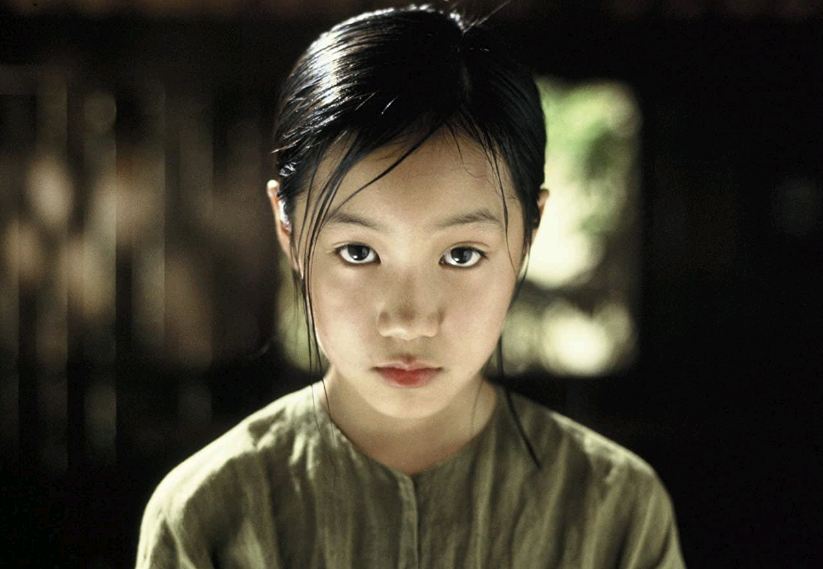
Image credit: IMDB/Benoît Delhomme
Set in colonial Saigon from the 1940s until the 1960s, The Scent Of Green Papaya (1993) tells the story of Mùi (played by Man San Lu), a 10-year-old orphan who begins working at a rich merchant family who is experiencing financial difficulties.
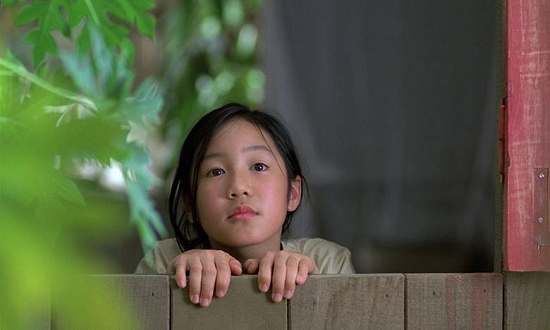
Image credit: Boloji/Benoît Delhomme
An innocent Mùi gets curious about almost everything around her, from the way an ant carries food to its nest to the happenings in her employer’s family.
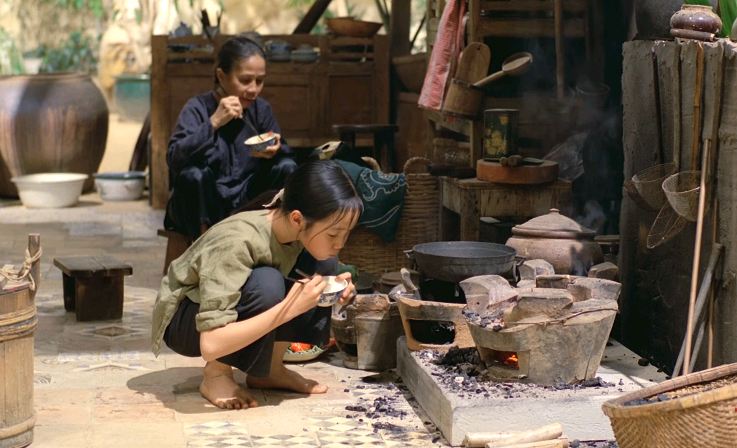
Image credit: Filmroot/Benoît Delhomme
The first half of the film transpires through the inquisitive eyes of Mùi, whose observations tell the story of her employer’s family.
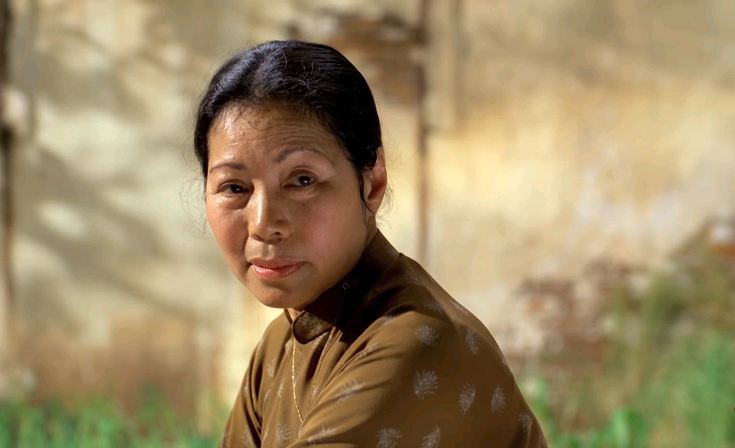
The boss lady is a doting wife and mother
Image adapted from: Trường Lê Vũ/Benoît Delhomme
The boss lady had a daughter who had died a few years ago, and Mùi reminds the kind, quiet lady of her lost child. The lady’s husband is an unfaithful man who gradually squanders away the family’s fortune on recreation and only comes home when he runs out of money.

Mùi serving food to the father and the kids
Image credit: Boloji/Benoît Delhomme
The boss lady’s mother-in-law, an ill and embittered widow who never leaves her upstairs room, knows a man who has single-mindedly pursued her throughout her adulthood, but she refuses to see him again because it’s against moral norms.

The mother has to work to provide for the family.
Image adapted from: Trường Lê Vũ/Benoît Delhomme
The boss lady and her husband have three sons who rarely mind their family’s business. So the survival of the family falls on the boss lady, who has to start a small business to put food on the table.
Once, the husband comes home and steals all of her meagre savings and her jewelry. Distraught and terrified as she is, she is never seen uttering one word of complaint against her husband.
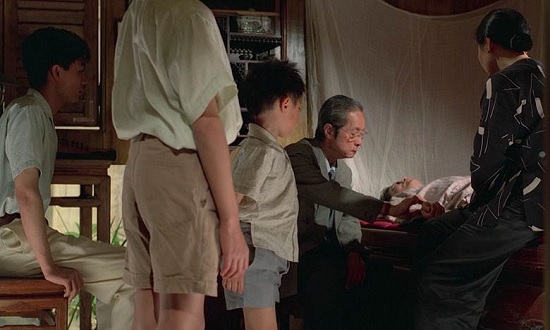
Image credit: Boloji/Benoît Delhomme
One day, the husband comes home in a fragile state. The boss lady takes care of her husband with utmost devotion, only to see him die shortly after that.
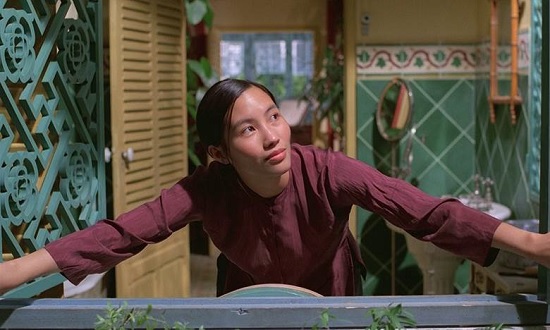
20-year-old Mùi
Image credit: Boloji/Benoît Delhomme
As the boss lady’s family finances get more dismal, she has to let Mùi (played by Trần Nữ Yên Khê), now a 20-year-old beautiful woman, go and work for her oldest son’s friend.
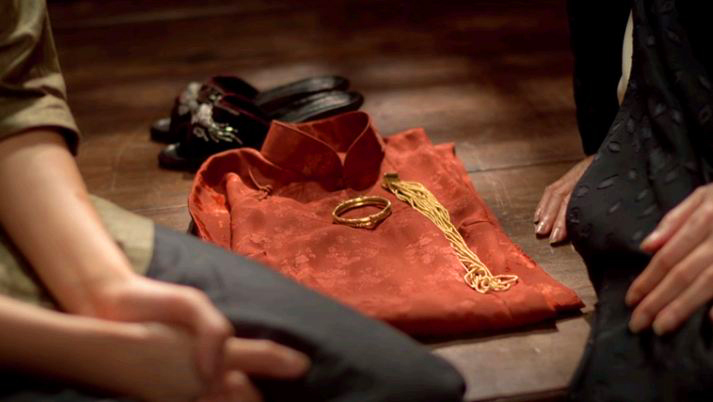
Image credit: Trường Lê Vũ/Benoît Delhomme
Before Mùi leaves, the tearful boss lady hands her a red áo dài and some jewelry, which are typical gifts that a Vietnamese mother gives her daughter for her wedding day.
Mùi’s new boss, a rich and young pianist in his 20s, has a French-educated, coquettish fiance.
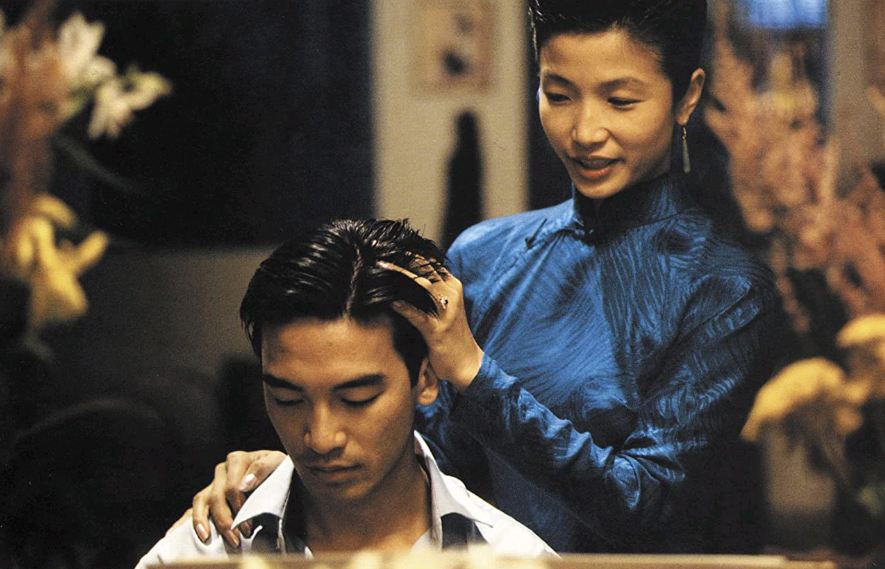
The pianist and his girlfriend
Image credit: Boloji/Benoît Delhomme
She’s the polar opposite of Mùi, who is always seen in frugal attire and happy doing house chores in perfect quietness.
Secretly in love with her talented and indifferent boss, she cooks him elaborate meals and pays attention to the smallest details of plating just to make the food look as good as it tastes.
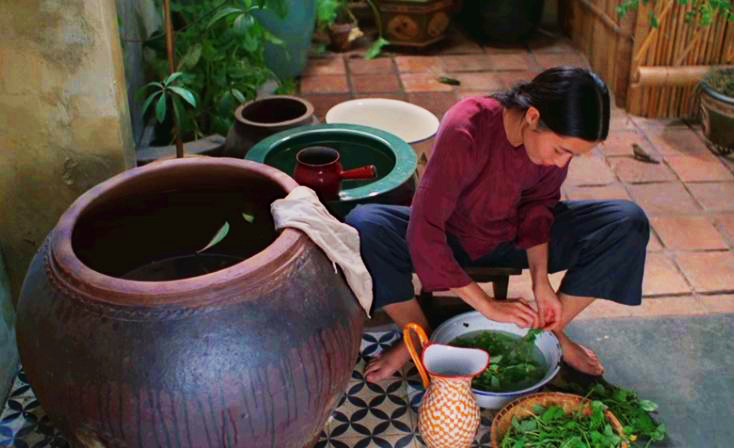
Image credit: Trường Lê Vũ/Benoît Delhomme
And yet, the employer never seems to notice the young maid’s efforts and even skips meals to enjoy his girlfriend’s company.
One day, the pianist and his high-maintenance lover break up.
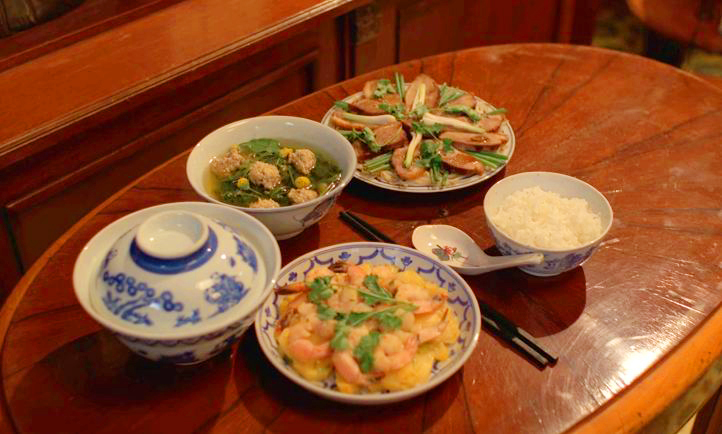
Image credit: Trường Lê Vũ/Benoît Delhomme
He starts to notice Mùi’s soothing presence and appreciates the minute details attended to by Mùi that make his abode pleasant and his life fulfilling.
He starts to fall in love with her and teaches her to read and write.
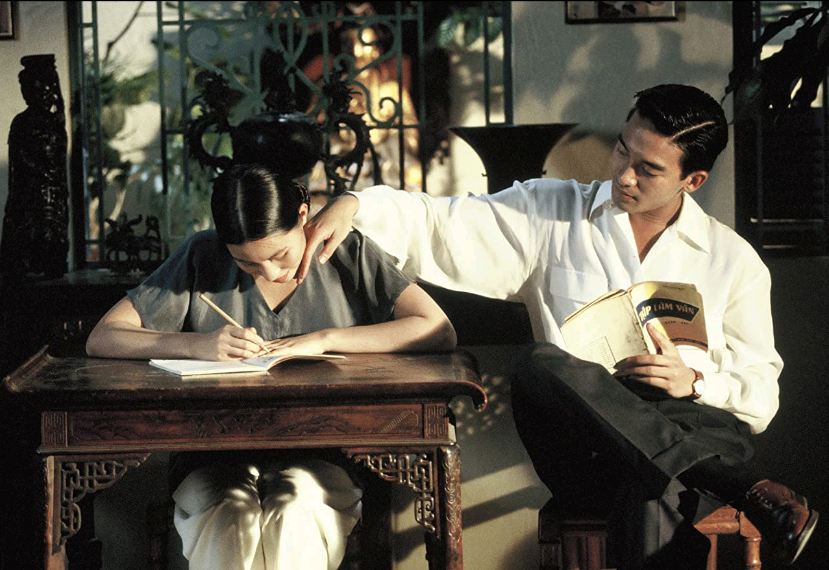
Image credit: IMDB/Benoît Delhomme
Towards the end of the film, the couple are seen preparing to welcome their first baby.
2. The Scent Of Green Papaya has very little dialogue and a simple plot
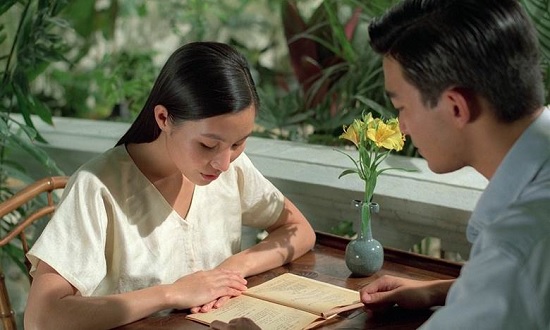
Image credit: Boloji/Benoît Delhomme
This slow-paced film has little dialogue and relies purely on visual aesthetics and characters’ actions, which are convincing enough to substitute the lack of spoken storytelling. Plus, while the movie plot is also very simple and realistic, it does well in making audiences slow down and try to find the complexities and meanings in its symbols and patterns.
According to some critics, the lack of communication and twists in the movie even helps to enrich its artistry.

The boss lady and her son crying about the husband’s desertion
Image adapted from: Trường Lê Vũ/Benoît Delhomme
For those more in touch with Vietnamese history and culture, you’ll quickly realize that this movie aims to celebrate the cultural values of Vietnamese women. Selfless, tolerant, and compassionate, the women in The Scent Of Green Papaya embody the core virtues expected of and often seen in Vietnamese women from time immemorial.
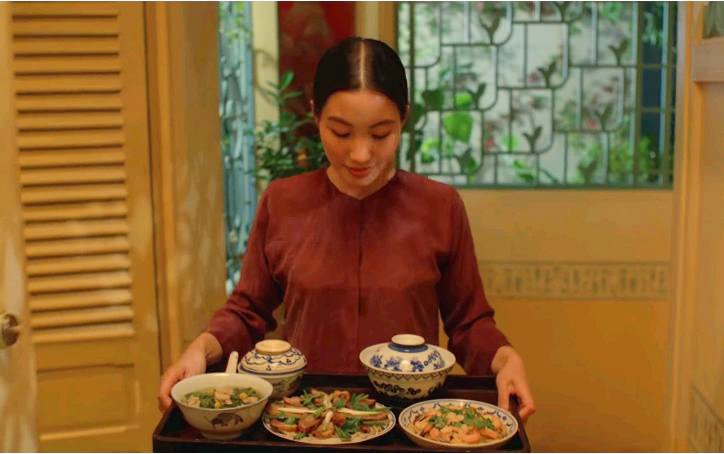
Mùi bringing dinner to her employer
Image adapted from: Trường Lê Vũ/Benoît Delhomme
From the way the boss lady tolerates her husband’s unfaithfulness to keep the family together to the thoughtfully cooked meals that Mùi quietly and faithfully prepares for the man she loves even though he barely notices or appreciates her, the unconditional, often neglected sacrifices made by Vietnamese women are deftly portrayed in the movie.
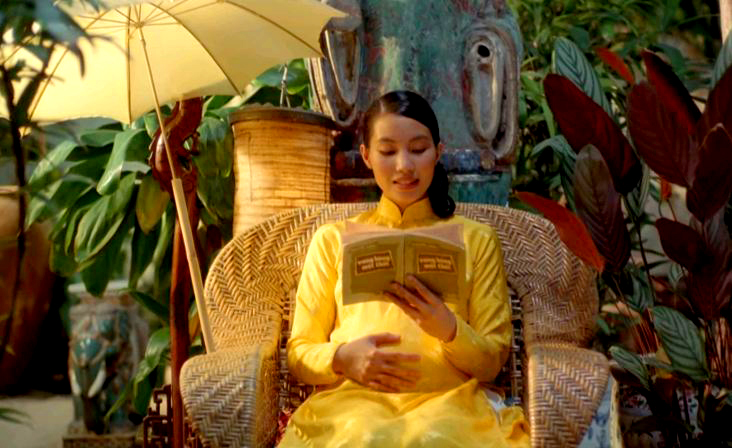
Mùi reading to her baby
Image adapted from: Trường Lê Vũ/Benoît Delhomme
For those who are hooked on melodramatic films or action movies that burst with energy and are full of cliffhangers, The Scent Of Green Papaya can be a little hard to digest – but is worth the time investment.
3. It was filmed on a soundstage in France
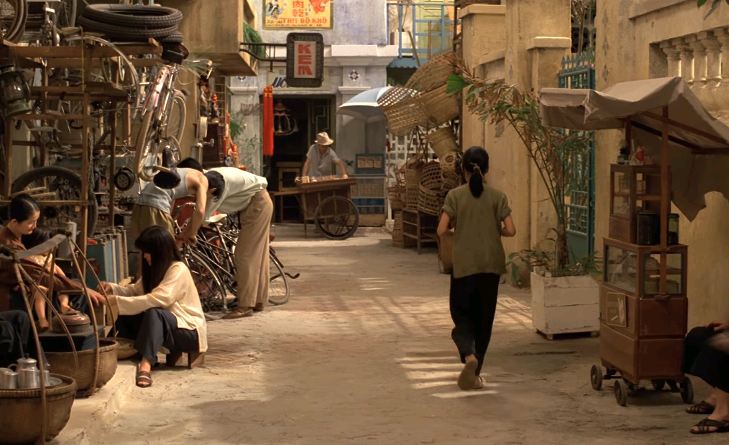
The alleyway where Mùi lives
Image adapted from: Georgia Elenko/Benoît Delhomme
To conjure up the nostalgic images and vibes of colonial Vietnam without filming in Vietnam or at least in a real-world setting is hard, but Trần Anh Hùng managed to pull it off – in a soundstage.

The family’s house boasts Vietnamese vernacular architecture
Image credit: Trường Lê Vũ/Benoît Delhomme
Most studio films inevitably have artificial qualities about them, but The Scent Of Green Papaya is relatively convincing.
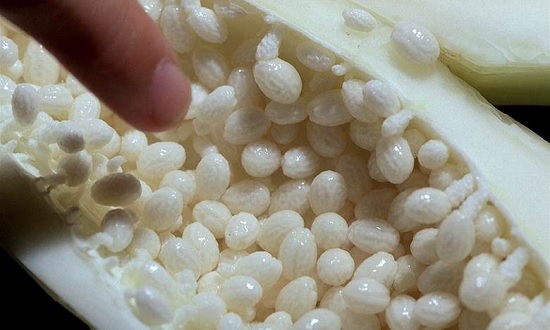
Mùi admiring sparkling papaya seeds
Image credit: Boloji/Benoît Delhomme
The movie’s color palettes are filled with vivid imagery that transports the audience to the past and opens our eyes to the beauty of every little thing around us, from the big, sparkling eyes of a little girl to the glistening white papaya seeds.
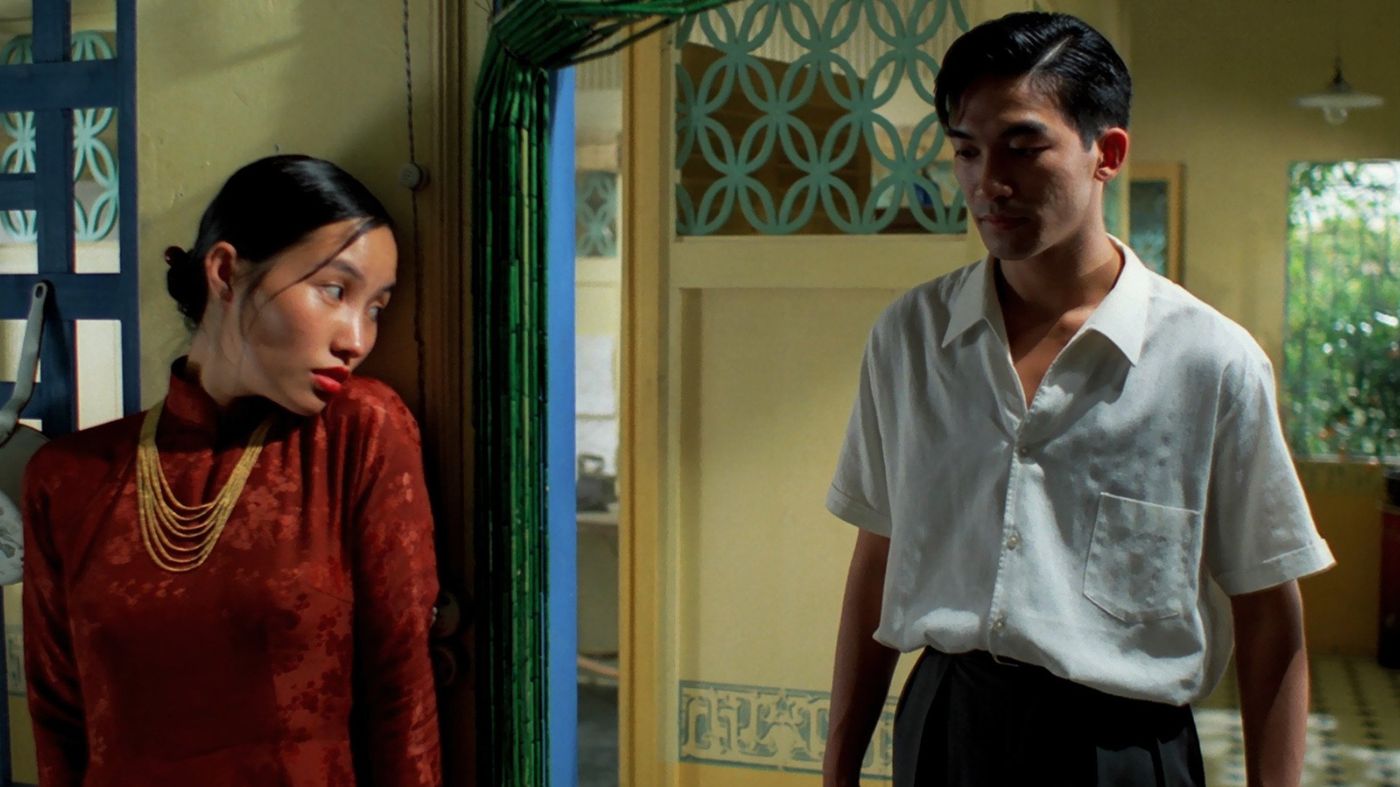
Image credit: Boloji/Benoît Delhomme
Flush with painterly visuals, subtle tones, as well as expressive facial acting, The Scent Of Green Papaya illustrates the nostalgic picture of a colonial Saigonese alleyway.
4. The movie received multiple prestigious awards after release
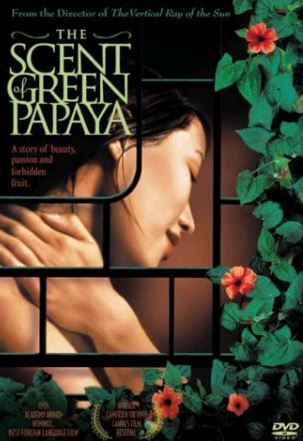
Image credit: IMDB/Benoît Delhomme
For a movie filmed in a soundstage, The Scent Of Green Papaya did pretty well.
At the 1993 Cannes Film Festival, Trần Anh Hùng won the Award of the Youth French Film and the Golden Camera Award. In the 1994 Cesar Awards, Trần Anh Hùng also received the Best First Work award for this cinematic masterpiece.
The Scent Of Green Papaya was also nominated for the Best Foreign Language Film in the 1994 Academy Awards, a prestige that not many non-English films had those days.
5. It was made by Vietnamese-French director Trần Anh Hùng

Image credit: IMDB
Aesthetics and recognition aside, one of the reasons why this movie has been all the rage with Vietnamese critics is that it’s made by Trần Anh Hùng, a Vietnam-born filmmaker.
A highly regarded movie director whose acclaimed works include Norwegian Wood (2010), Cyclo (1995), and Eternite (2016), Trần Anh Hùng is not a strange name in the global cinema scene.
Born in 1962 in Mỹ Tho, Trần Anh Hùng and his family moved to France after 1975. There he pursued a course in cinematography at the prestigious Louis Lumière College and now lives in Paris.
His wife, Trần Nữ Yên Khê, plays Mùi in The Green Scent Of Papaya and also stars as the lead in many of his movies set in Vietnam.
A beautifully made film about Vietnamese women
Visually captivating and meaningful in equal measure, Trần Anh Hùng‘s The Scent Of Green Papaya portrays the sacrifices and loneliness of family-centered Vietnamese women in the old days.
Many were held to exacting standards in everything they did and were not free to pursue their happiness at the expense of letting their family fall apart and sullying their good names.
While the core values that many generations of Vietnamese women have been brought up with, such as compassion and selflessness, are worth upholding, we shouldn’t forget that our own happiness is also worth pursuing. Things have changed, as many doors have now opened for women from all walks of life, and all women should allow themselves to live their lives as they see fit.
Also check out:
- Heaven and Earth (1993): a Vietnam War film through an ordinary woman’s perspective
- Cyclo (1995): a movie about Saigon gangs starring Tony Leung
- Indochine (1992): a historical movie about Vietnam that won an Oscar
- L’Amant (1992): an eventful Saigon love story in the Indochinese era
- The ghost of the Hứa family: new discoveries from ghosthunters
Cover image adapted from: Boloji/Benoît Delhomme
Enjoying The Smart Local Vietnam? Follow us on Facebook, Telegram, Instagram, and LinkedIn for more stories like this. If you have a story to share, email us at pressvn@thesmartlocal.com.
